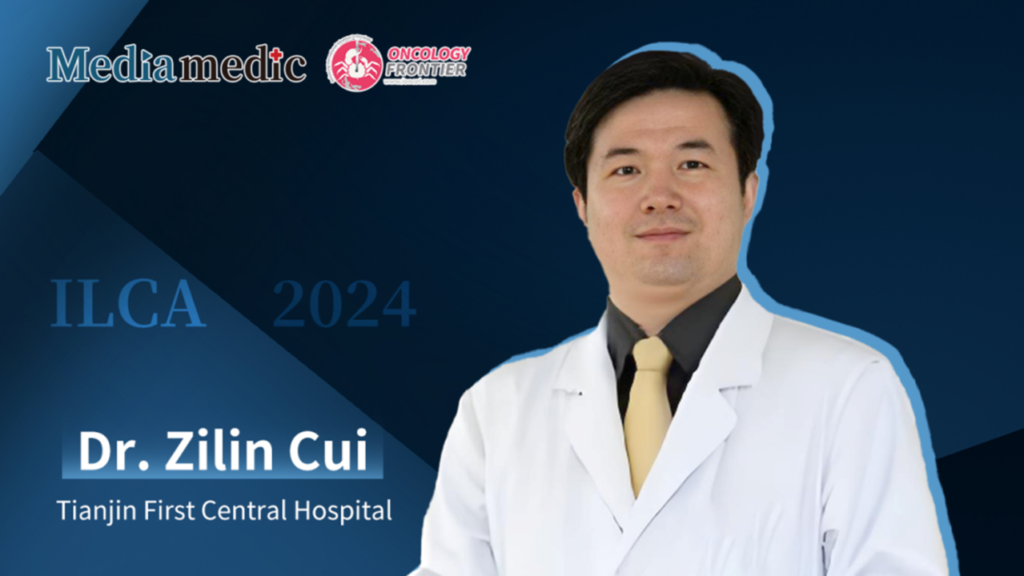
Editor's Note: In clinical practice, several criteria are available for evaluating liver transplant candidates, such as the Milan Criteria, UCSF Criteria in the U.S., Ontario Criteria in Canada, and domestic standards like the Fudan Criteria and Hangzhou Criteria in China. Among these, the Milan Criteria are the most widely adopted. However, differences in survival outcomes based on these criteria suggest the need for refinement. At the recently held 2024 International Liver Cancer Association (ILCA) Conference, a study utilizing data from the United Network for Organ Sharing (UNOS) compared survival rates between patients evaluated under the Milan Criteria and the Ontario Criteria. Oncology Frontier invited Dr. Zilin Cui from Tianjin First Central Hospital to introduce and review the study.Dr. Zilin Cui:The Milan Criteria is a classic and widely applied standard for evaluating liver transplant prognosis. However, with advances in hepatocellular carcinoma (HCC) treatment, the predictive capability of this criterion has gradually shown limitations. This study combined the Milan Criteria and Ontario Criteria to evaluate the prognosis of HCC patients awaiting transplantation, aiming to create a more accurate predictive model. The study found that patients who exceeded both the Milan and Ontario Criteria had the worst prognosis. Furthermore, the study revealed that within the Ontario Criteria, AFP (alpha-fetoprotein) was a stronger indicator of patient prognosis compared to overall tumor volume. By using a comparative approach, the study sought to refine the prognostic assessment for HCC transplant candidates, and as expected by the research team, incorporating AFP levels above 1000 µg/L significantly improved prognostic accuracy.
Incorporating AFP into the predictive model mirrors China’s “Hangzhou Criteria.” Accurate and practical assessments are crucial for predicting the prognosis of HCC patients undergoing liver transplantation. Calculating tumor volume often requires specialized software and three-dimensional reconstruction, which is challenging to implement widely. Evaluating tumor load using the maximum tumor diameter is more feasible and reliable. AFP is a straightforward clinical marker, and multiple studies have demonstrated its close association with the aggressiveness of HCC. Including AFP in the predictive system fills the gap in assessing the biological behavior of tumors.
Overall, this study represents an essential exploration in refining prognostic assessments for HCC patients awaiting liver transplantation. Building on the Milan Criteria, the study provides a promising direction for developing better predictive models. It holds significant implications for the prognosis and therapeutic decision-making of HCC patients awaiting transplantation.
Dr. Zilin Cui
- Academic and Professional Background: Medical Doctor, Chief Physician, and Director of Hepatobiliary and Pancreatic Surgery Master’s Supervisor at Tianjin Medical University and Nankai University Board Member, Tianjin Health Education Association Chairman, Hepatobiliary Surgery Committee, Tianjin Health Education Association Vice Chairman, Hepatobiliary and Pancreatic Surgery Committee, China Elderly Health Care Association Vice Chairman, Pancreatic Cancer Committee, Tianjin Anti-Cancer Association Vice Chairman, Integrated Traditional Chinese and Western Medicine Committee, Tianjin Medical Health Association Vice Chairman, Surgical Transfusion Committee, Tianjin Blood Transfusion Association Deputy Leader, Hepatic Surgery Group, Tianjin Medical Association Surgery Committee Deputy Leader, Pancreatic Surgery Group, Tianjin Medical Association Surgery Committee Member, Precision Medicine Committee, Chinese Association for Cancer Research Member, Hepatobiliary Tumor Professional Committee, Tianjin Anti-Cancer Association Member, Enhanced Recovery After Surgery Committee, Tianjin Medical Health Association Member, Hepatobiliary Surgery Committee, Chinese Research Hospital Association Member, General Surgery Committee, Chinese Association for Geriatric Medicine Member, Hepatobiliary MDT Committee, International Hepatopancreatobiliary Association, Chinese Branch Member, Hepatic Microcirculation Committee, Chinese Society of Microcirculation Member, Parenteral and Enteral Nutrition Committee, Tianjin Medical Association Member, Organ Transplant Committee, Tianjin Medical Association Corresponding Editor, Chinese Journal of Experimental Surgery and Tianjin Medical Journal
- Clinical Expertise: Specializes in the diagnosis and treatment of various hepatobiliary and pancreatic diseases, performing complex hepatobiliary and pancreatic surgeries, especially liver transplantation. He has extensive experience in treating liver transplant patients and is skilled in minimally invasive laparoscopic surgery for hepatobiliary and pancreatic diseases. Professor Cui has in-depth expertise in preoperative evaluation and surgical management of benign and malignant hepatobiliary and pancreatic tumors, liver cirrhosis with portal hypertension, and gallstones.


